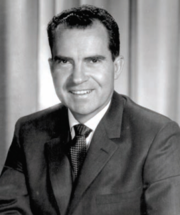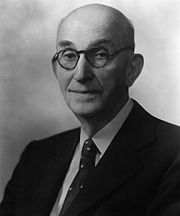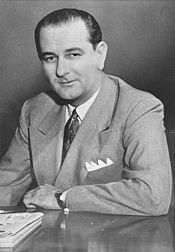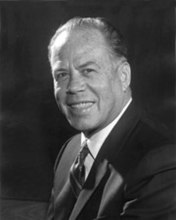86th United States Congress

 Clash Royale CLAN TAG#URR8PPP
Clash Royale CLAN TAG#URR8PPP | 86th United States Congress | |
|---|---|
85th ← → 87th | |
 United States Capitol (1956) | |
| January 3, 1959 (1959-01-03) – January 3, 1961 (1961-01-03) | |
| Senate President | Richard Nixon (R) |
| Senate Pres. pro tem | Carl Hayden (D) |
| House Speaker | Sam Rayburn (D) |
| Members | 96 (then increasing to 100) senators 435 (then temporarily increasing to 437) representatives |
| Senate Majority | Democratic |
| House Majority | Democratic |
| Sessions | |
1st: January 7, 1959 – September 15, 1959 2nd: January 6, 1960 – September 1, 1960 | |
The Eighty-sixth United States Congress was a meeting of the legislative branch of the United States federal government, composed of the United States Senate and the United States House of Representatives. It met in Washington, D.C. from January 3, 1959, to January 3, 1961, during the last two years of the presidency of Dwight D. Eisenhower. The apportionment of seats in the House of Representatives was based on the Seventeenth Census of the United States in 1950. Both chambers had a Democratic majority. When Alaska and Hawaii were admitted as states in 1959, the membership of the House temporarily increased to 437 (seating one member from each of those newly admitted states and leaving the apportionment of the other 435 seats unchanged); it would remain at 437 until reapportionment resulting from the 1960 census.
Contents
1 Major events
2 Major legislation
3 Constitutional amendments
4 Treaties
5 States admitted
6 Party summaries
6.1 Senate
6.2 House of Representatives
7 Leadership
7.1 Senate
7.1.1 Majority (Democratic) leadership
7.1.2 Minority (Republican) leadership
7.2 House of Representatives
7.2.1 Majority (Democratic) leadership
7.2.2 Minority (Republican) leadership
8 Caucuses
9 Members
9.1 Senate
9.1.1 Alabama
9.1.2 Alaska
9.1.3 Arizona
9.1.4 Arkansas
9.1.5 California
9.1.6 Colorado
9.1.7 Connecticut
9.1.8 Delaware
9.1.9 Florida
9.1.10 Georgia
9.1.11 Hawaii
9.1.12 Idaho
9.1.13 Illinois
9.1.14 Indiana
9.1.15 Iowa
9.1.16 Kansas
9.1.17 Kentucky
9.1.18 Louisiana
9.1.19 Maine
9.1.20 Maryland
9.1.21 Massachusetts
9.1.22 Michigan
9.1.23 Minnesota
9.1.24 Mississippi
9.1.25 Missouri
9.1.26 Montana
9.1.27 Nebraska
9.1.28 Nevada
9.1.29 New Hampshire
9.1.30 New Jersey
9.1.31 New Mexico
9.1.32 New York
9.1.33 North Carolina
9.1.34 North Dakota
9.1.35 Ohio
9.1.36 Oklahoma
9.1.37 Oregon
9.1.38 Pennsylvania
9.1.39 Rhode Island
9.1.40 South Carolina
9.1.41 South Dakota
9.1.42 Tennessee
9.1.43 Texas
9.1.44 Utah
9.1.45 Vermont
9.1.46 Virginia
9.1.47 Washington
9.1.48 West Virginia
9.1.49 Wisconsin
9.1.50 Wyoming
9.2 House of Representatives
9.2.1 Alabama
9.2.2 Alaska
9.2.3 Arizona
9.2.4 Arkansas
9.2.5 California
9.2.6 Colorado
9.2.7 Connecticut
9.2.8 Delaware
9.2.9 Florida
9.2.10 Georgia
9.2.11 Hawaii
9.2.12 Idaho
9.2.13 Illinois
9.2.14 Indiana
9.2.15 Iowa
9.2.16 Kansas
9.2.17 Kentucky
9.2.18 Louisiana
9.2.19 Maine
9.2.20 Maryland
9.2.21 Massachusetts
9.2.22 Michigan
9.2.23 Minnesota
9.2.24 Mississippi
9.2.25 Missouri
9.2.26 Montana
9.2.27 Nebraska
9.2.28 Nevada
9.2.29 New Hampshire
9.2.30 New Jersey
9.2.31 New Mexico
9.2.32 New York
9.2.33 North Carolina
9.2.34 North Dakota
9.2.35 Ohio
9.2.36 Oklahoma
9.2.37 Oregon
9.2.38 Pennsylvania
9.2.39 Rhode Island
9.2.40 South Carolina
9.2.41 South Dakota
9.2.42 Tennessee
9.2.43 Texas
9.2.44 Utah
9.2.45 Vermont
9.2.46 Virginia
9.2.47 Washington
9.2.48 West Virginia
9.2.49 Wisconsin
9.2.50 Wyoming
9.2.51 Non-voting members
10 Changes in membership
10.1 Senate
10.2 House of Representatives
11 Committees
11.1 Senate
11.2 House of Representatives
11.3 Joint committees
12 Employees and legislative agency directors
12.1 Legislative branch agency directors
12.2 Senate
12.3 House of Representatives
13 See also
14 References
Major events
- January 7, 1959: The United States recognizes the new Cuban government of Fidel Castro
- February 12, 1959: In commemorations of the 150th anniversary of Abraham Lincoln's birth, Congress met in joint session to hear actor Fredric March give a dramatic reading of the Gettysburg Address, followed with an address by writer Carl Sandburg[1]
- February 1, 1960: Greensboro sit-ins begin
- May 1, 1960: U-2 incident
- June 29, 1960: King Bhumibol Adulyadej of Thailand addresses a Joint Meeting of Congress
- November 8, 1960: United States presidential election, 1960: John F. Kennedy elected
Major legislation
- 1959: Airport Construction Act, Pub.L. 86–72
- September 14, 1959: Landrum–Griffin Act, Pub.L. 86–257, 73 Stat. 519
- April 22, 1960: Narcotics Manufacturing Act of 1960, Pub.L. 86–429, 74 Stat. 55
- May 6, 1960: Civil Rights Act of 1960, Pub.L. 86–449, 74 Stat. 86
- June 12, 1960: Multiple-Use Sustained-Yield Act of 1960, Pub.L. 86–517, 74 Stat. 215
- July 14, 1960: Flood Control Act of 1960, Pub.L. 86–845, 74 Stat. 488
- September 13, 1960: Social Security Amendments (Kerr-Mill aid), Pub.L. 86–778, 74 Stat. 976
Constitutional amendments

The official Joint Resolution of Congress proposing what became the 23rd Amendment as contained in the National Archives
- June 16, 1960: Approved an amendment to the United States Constitution extending the right to vote in the presidential election to citizens residing in the District of Columbia by granting the District electors in the Electoral College, as if it were a state, and submitted it to the state legislatures for ratification
- Amendment was later ratified on March 29, 1961, becoming the Twenty-third Amendment to the United States Constitution
- Amendment was later ratified on March 29, 1961, becoming the Twenty-third Amendment to the United States Constitution
Treaties

Treaty of Mutual Cooperation and Security between the United States and Japan
- December 1, 1959: Antarctic Treaty signed
- January 19, 1960: Treaty of Mutual Cooperation and Security between the United States and Japan signed
States admitted
- August 21, 1959: Hawaii was admitted as the 50th state.
Party summaries
Senate
| Party (shading shows control) | Total | Vacant | ||
|---|---|---|---|---|
Democratic (D) | Republican (R) | |||
| End of the previous congress | 50 | 45 | 95 | 1 |
| Begin | 64 | 34 | 98 | 0 |
| End | 66 | 100 | ||
| Final voting share | 7001660000000000000♠66.0% | 7001340000000000000♠34.0% | ||
| Beginning of the next congress | 65 | 35 | 100 | 0 |
House of Representatives
Democratic: 283 (majority)
Republican: 153
Independent: 1
TOTAL members: 437. The increase over the usual 435 members was due to the admission of Alaska and Hawaii, whose seats were temporary until reapportionment following the 1960 Census.
Leadership
@media all and (max-width:720px).mw-parser-output .tmulti>.thumbinnerwidth:100%!important;max-width:none!important.mw-parser-output .tmulti .tsinglefloat:none!important;max-width:none!important;width:100%!important;text-align:center

Richard Nixon (R)

Carl Hayden

Sam Rayburn
Senate
President of the Senate: Richard Nixon (R)
President pro tempore: Carl Hayden (D)
Majority (Democratic) leadership
Majority Leader: Lyndon B. Johnson
Majority Whip: Mike Mansfield
Caucus Secretary: Thomas C. Hennings Jr., until September 13, 1960
George Smathers, afterwards
Minority (Republican) leadership
Minority Leader: Everett Dirksen
Minority Whip: Thomas Kuchel
Republican Conference Chairman: Leverett Saltonstall
Republican Conference Secretary: Milton Young
National Senatorial Committee Chair: Andrew Frank Schoeppel
Policy Committee Chairman: Styles Bridges
House of Representatives
Speaker: Sam Rayburn (D)
Majority (Democratic) leadership
Majority Leader: John William McCormack
Majority Whip: Carl Albert
Democratic Caucus Chairman: Charles Melvin Price
Caucus Secretary: Leonor Sullivan
Democratic Campaign Committee Chairman: Michael J. Kirwan
Minority (Republican) leadership
Minority Leader: Charles A. Halleck
Minority Whip: Leslie C. Arends
Conference Chair: Charles B. Hoeven
Policy Committee Chairman: John W. Byrnes
Caucuses
- House Democratic Caucus
- Senate Democratic Caucus
Members
Senate
Senators are popularly elected statewide every two years, with one-third beginning new six-year terms with each Congress. Preceding the names in the list below are Senate class numbers, which indicate the cycle of their election, In this Congress, Class 2 meant their term ended with this Congress, requiring reelection in 1960; Class 3 meant their term began in the last Congress, requiring reelection in 1962; and Class 1 meant their term began in this Congress, requiring reelection in 1964.
|
| Senate Majority Leaders  Democratic Leader Lyndon Johnson  Democratic Whip Mike Mansfield Senate Minority Leaders  Republican Leader Everett Dirksen  Republican Whip Thomas Kuchel  Senate composition by party at the beginning of the 86th Congress (Alaska was admitted as a state on the same day this Congress started; Senators from Hawaii did not take office until later in 1959.) |
House of Representatives
The names of members of the House of Representatives are preceded by their district numbers.
|
| House Majority Leaders  Democratic Leader John W. McCormack  Democratic Whip Carl Albert House Minority Leaders  Republican Leader Charles A. Halleck  Republican Whip Leslie C. Arends 
| ||||||||
Changes in membership
Senate
| State (class) | Vacator | Reason for change | Successor | Date of successor's formal installation |
|---|---|---|---|---|
Hawaii (1) | New seats | Hawaii achieved statehood August 21, 1959. | Hiram Fong (R) | August 21, 1959 |
Hawaii (3) | Oren E. Long (D) | |||
North Dakota (1) | William Langer (R) | Died November 8, 1959. | Clarence N. Brunsdale (R) | November 19, 1959 |
Oregon (2) | Richard L. Neuberger (D) | Died March 9, 1960 | Hall S. Lusk (D) | March 16, 1960 |
North Dakota (1) | Clarence N. Brunsdale (R) | Successor elected June 28, 1960. Successor qualified August 8, 1960. | Quentin N. Burdick (D) | August 8, 1960 |
Missouri (3) | Thomas C. Hennings, Jr. (D) | Died September 13, 1960 | Edward V. Long (D) | September 23, 1960 |
Oregon (2) | Hall S. Lusk (D) | Successor elected November 8, 1960 | Maurine Brown Neuberger (D) | November 9, 1960 |
Massachusetts (1) | John F. Kennedy (D) | Resigned December 22, 1960, after being elected President of the United States | Benjamin A. Smith II (D) | December 27, 1960 |
House of Representatives
| District | Vacator | Reason for change | Successor | Date of successor's formal installation |
|---|---|---|---|---|
Missouri 4th | George H. Christopher (D) | Died January 23, 1959 | William J. Randall (D) | March 3, 1959 |
New York 43rd | Daniel A. Reed (R) | Died February 19, 1959 | Charles Goodell (R) | May 26, 1959 |
Ohio 6th | James G. Polk (D) | Died April 28, 1959 | Ward Miller (R) | November 8, 1960 |
Hawaii Territory At-large | John A. Burns (D) | Hawaii achieved statehood. | Seat eliminated August 21, 1959 | |
Hawaii At-large | New seat | Hawaii achieved statehood August 21, 1959 | Daniel Inouye (D) | August 21, 1959 |
Illinois 12th | Charles A. Boyle (D) | Died November 4, 1959 | Vacant | Not filled this term |
Iowa 4th | Steven V. Carter (D) | Died November 4, 1959 | John H. Kyl (R) | December 15, 1959 |
Pennsylvania 17th | Alvin Bush (R) | Died November 5, 1959 | Herman T. Schneebeli (R) | April 26, 1960 |
New York 23rd | Isidore Dollinger (D) | Resigned December 31, 1959 | Jacob H. Gilbert (D) | March 8, 1960 |
Pennsylvania 18th | Richard M. Simpson (R) | Died January 7, 1960 | Douglas H. Elliott (R) | April 26, 1960 |
North Carolina 12th | David M. Hall (D) | Died January 29, 1960 | Roy A. Taylor (D) | June 25, 1960 |
Washington 3rd | Russell V. Mack (R) | Died March 28, 1960 | Julia Butler Hansen (D) | November 8, 1960 |
Pennsylvania 18th | Douglas H. Elliott (R) | Died June 19, 1960 | J. Irving Whalley (R) | November 8, 1960 |
North Dakota At-large | Quentin N. Burdick (D) | Resigned August 8, 1960, after becoming U.S. Senator | Vacant | Not filled this term |
Massachusetts 5th | Edith Nourse Rogers (R) | Died September 10, 1960 | Vacant | Not filled this term |
Wyoming At-large | Edwin K. Thomson (R) | Died December 9, 1960 | Vacant | Not filled this term |
New York 5th | Albert H. Bosch (R) | Resigned December 31, 1960, after being elected judge of Court of Queens County | Vacant | Not filled this term |
Committees
Lists of committees and their party leaders, for members (House and Senate) of the committees and their assignments, go into the Official Congressional Directory at the bottom of the article and click on the link (2 links), in the directory after the pages of terms of service, you will see the committees of the Senate, House (Standing with Subcommittees, Select and Special) and Joint and after the committee pages, you will see the House/Senate committee assignments in the directory, on the committees section of the House and Senate in the Official Congressional Directory, the committee's members on the first row on the left side shows the chairman of the committee and on the right side shows the ranking member of the committee.
Senate
- Aeronautical and Space Sciences
- Agriculture and Forestry
- Appropriations
- Banking and Currency
- District of Columbia
- Finance
- Foreign Relations
- Government Operations
- Interior and Insular Affairs
- Interstate and Foreign Commerce
- Judiciary
Labor-Management Relations (Select)- Labor and Public Welfare
National Water Resources (Select)
Preserve Historical Records of the Senate (Special)- Post Office and Civil Service
- Public Works
Small Business (Select)
Space and Aeronautics (Special)- Subcommittee on Internal Security
Unemployment Problems (Special)- Whole
House of Representatives
- Agriculture
- Appropriations
- Banking and Currency
- District of Columbia
- Education and Labor
- Foreign Affairs
- Government Operations
- House Administration
- Interior and Insular Affairs
Interstate and Foreign Commerce- Subcommittee on Legislative Oversight
- Merchant Marine and Fisheries
- Post Office and Civil Service
- Public Works
- Rules
- Science and Astronautics
Small Business (Select)- Standards of Official Conduct
- Un-American Activities
- Veterans' Affairs
- Ways and Means
- Whole
Joint committees
- Atomic Energy
Conditions of Indian Tribes (Special)- Construction of a Building for a Museum of History and Technology for the Smithsonian
- Defense Production
- Disposition of Executive Papers
- Economic
- Immigration and Nationality Policy
- Legislative Budget
- The Library
- Navajo-Hopi Indian Administration
- Printing
- Reduction of Nonessential Federal Expenditures
- Taxation
- Washington (DC) Metropolitan Problems
Employees and legislative agency directors
Legislative branch agency directors
Architect of the Capitol: J. George Stewart
Attending Physician of the United States Congress: George Calver
Comptroller General of the United States: Joseph Campbell
Librarian of Congress: Lawrence Quincy Mumford
Public Printer of the United States: Raymond Blattenberger
Senate
Chaplain: Frederick Brown Harris, Methodist
Parliamentarian: Charles Watkins
Secretary: Felton McLellan Johnston
Sergeant at Arms: Joseph C. Duke
House of Representatives
Clerk: Ralph R. Roberts
Doorkeeper: William Mosley "Fishbait" Miller
Parliamentarian: Lewis Deschler
Postmaster: H. H. Morris
Reading Clerks: Joe Bartlett (R) and N/A (D)
Sergeant at Arms: Zeake W. Johnson, Jr.
Chaplain: Bernard Braskamp - Presbyterian
See also
United States elections, 1958 (elections leading to this Congress)- United States Senate elections, 1958 and 1959
- United States House of Representatives elections, 1958
United States elections, 1960 (elections during this Congress, leading to the next Congress)- United States presidential election, 1960
- United States Senate elections, 1960
- United States House of Representatives elections, 1960
References
This article includes a list of references, but its sources remain unclear because it has insufficient inline citations. (April 2013) (Learn how and when to remove this template message) |
- Specific citations
^ "Nation Honor Lincoln On Sesquicentennial" (PDF). Yonkers Herald-Statesman. Northern Illinois University Libraries. Associated Press. February 11, 1959. Archived from the original (PDF) on November 1, 2013. Retrieved April 25, 2013.Congress gets into the act tomorrow, when a joint session will be held. Carl Sandburg, famed Lincoln biographer, will give and address, and actor Fredric March will read the Gettysburg Address.
.mw-parser-output cite.citationfont-style:inherit.mw-parser-output qquotes:"""""""'""'".mw-parser-output code.cs1-codecolor:inherit;background:inherit;border:inherit;padding:inherit.mw-parser-output .cs1-lock-free abackground:url("//upload.wikimedia.org/wikipedia/commons/thumb/6/65/Lock-green.svg/9px-Lock-green.svg.png")no-repeat;background-position:right .1em center.mw-parser-output .cs1-lock-limited a,.mw-parser-output .cs1-lock-registration abackground:url("//upload.wikimedia.org/wikipedia/commons/thumb/d/d6/Lock-gray-alt-2.svg/9px-Lock-gray-alt-2.svg.png")no-repeat;background-position:right .1em center.mw-parser-output .cs1-lock-subscription abackground:url("//upload.wikimedia.org/wikipedia/commons/thumb/a/aa/Lock-red-alt-2.svg/9px-Lock-red-alt-2.svg.png")no-repeat;background-position:right .1em center.mw-parser-output .cs1-subscription,.mw-parser-output .cs1-registrationcolor:#555.mw-parser-output .cs1-subscription span,.mw-parser-output .cs1-registration spanborder-bottom:1px dotted;cursor:help.mw-parser-output .cs1-hidden-errordisplay:none;font-size:100%.mw-parser-output .cs1-visible-errorfont-size:100%.mw-parser-output .cs1-subscription,.mw-parser-output .cs1-registration,.mw-parser-output .cs1-formatfont-size:95%.mw-parser-output .cs1-kern-left,.mw-parser-output .cs1-kern-wl-leftpadding-left:0.2em.mw-parser-output .cs1-kern-right,.mw-parser-output .cs1-kern-wl-rightpadding-right:0.2em
- General references
Gould, Lewis L. (2005). The Most Exclusive Club. Cambridge, MA: Perseus Books Group. ISBN 0-465-02778-4.
Remini, Robert V. (2006). The House. New York: HarperCollins Publishers, Inc. ISBN 0-06-088434-7.
"Biographical Directory of the U.S. Congress". U.S. Congress. 2005. Archived from the original on June 1, 2006. Retrieved June 1, 2006.
"Congressional History". U.S. House of Representatives. 2006. Archived from the original on June 1, 2006. Retrieved June 1, 2006.
"Statistics and Lists". U.S. Senate. 2006. Archived from the original on June 1, 2006. Retrieved June 1, 2006.
House of Representatives Session Calendar for the 86th Congress (PDF).
Official Congressional Directory for the 86th Congress, 1st Session.
Official Congressional Directory for the 86th Congress, 2nd Session.
Pocket Congressional Directory for the 86th Congress.